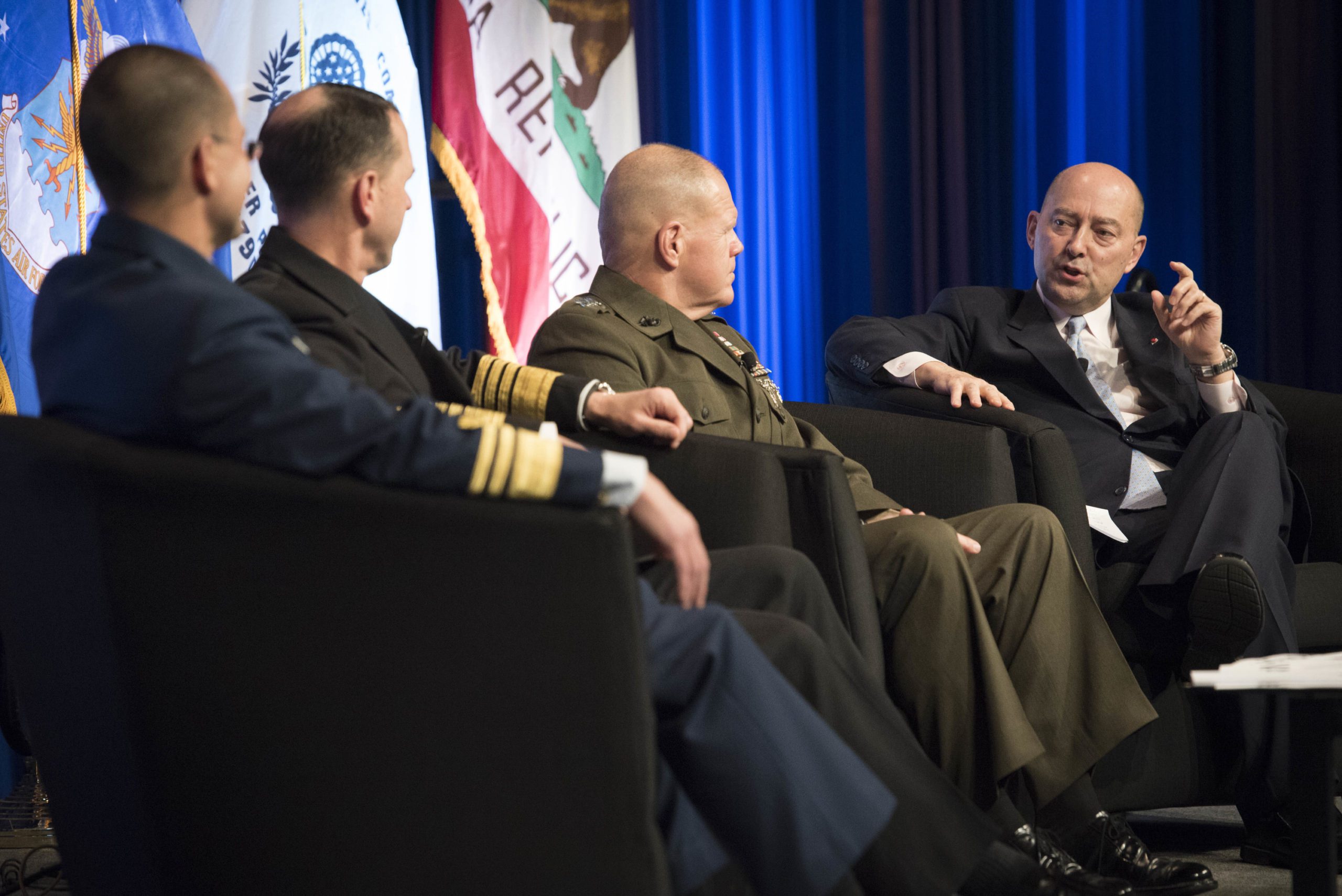Russia Conducts Navy Drills In White Sea
MOSCOW, July 21 (Reuters) – Russian warships conducted training drills in the White Sea to convoy and defend a caravan of ships, state-run TASS news agency reported on Sunday, citing the Russian...


Feb. 19, 2016 Vice Commandant of the Coast Guard Vice Adm. Charles Michel, Chief of Naval Operations (CNO) Adm. John Richardson and Commandant of the Marine Corps Gen. Robert Neller participate in a town hall luncheon with the moderator, retired Adm. James Stavridis, during a 2016 conference. (U.S. Navy photo by Nathan Laird)
by John Konrad (gCaptain) Today the UN reported that The number of people affected by hunger globally rose to as many as 828 million in 2021, an increase of about 46 million since 2020 and 150 million since the outbreak of the COVID-19 pandemic. These numbers are from before Russia invaded Ukraine. Now the food situation is far grimmer.
Inflation was running hot even before Russia invaded Ukraine, but disruption in Europe’s bread basket —Russia and Ukraine account for 13 percent and 8.5 percent of the world’s wheat exports, respectively—certainly hasn’t helped matters and there are now plenty of warnings that a global food shortage could be looming. Even if the normal cycle of sowing crops and harvesting them can keep going uninterrupted in Ukraine, wheat exports would still need to get out of the country.
“95 of all international trade moves by sea,” retired US Navy Admiral James Stavridis told Bloomberg. “Grain of course is a commodity that moves out in massive quantities and so the idea of trying truck it out or even train it out of Ukraine just doesn’t work.”
With Russia blockading the Black Sea, this seems like a major challenge. The problem is even greater considering that most of the major military players helping Ukraine right now are all Army officers (Secretary of Defense – retired US ARMY General Lloyd J. Austin, Chairman of the Joint Chiefs Of Staff – US ARMY General Mark A. Milley, NATO Supreme Allied Commander Europe – US ARMY General Christopher Cavoli, and White House Port Envoy – retired US ARMY General Stephen Lyons) with limited knowledge of commercial shipping or the Black Sea.
If we are going to avoid famine we need a dedicated Black Sea maritime task force similar to what NATO created to prevent piracy off Africa. And we are going to need a plan created by someone who understands commercial shipping, Russia, NATO, and the Black Sea.
In this episode of Bloomberg’s Odd Lots – Admiral James Stavridis – who was NATO Supreme Allied Commander when NATO created an anti-piracy task force to protect shipping – presents one idea to get Ukrainian grains out and to the rest of the world. He suggests reaching back to a military playbook last used in the Tanker War between Iraq and Iran.
Related Book: To Risk It All: Nine Conflicts and the Crucible of Decision by Admiral James Stavridis
Join the gCaptain Club for curated content, insider opinions, and vibrant community discussions.


Join the 107,357 members that receive our newsletter.
Have a news tip? Let us know.
Access exclusive insights, engage in vibrant discussions, and gain perspectives from our CEO.
Sign Up




Maritime and offshore news trusted by our 107,357 members delivered daily straight to your inbox.



Essential news coupled with the finest maritime content sourced from across the globe.
Sign Up